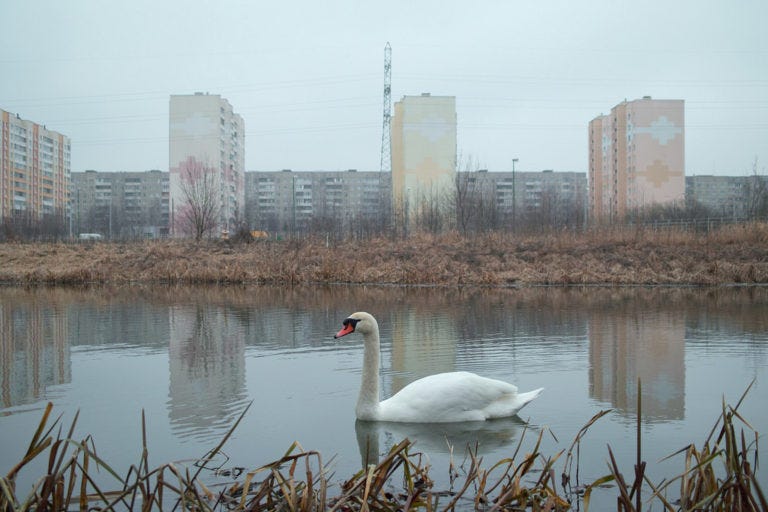First published @ Ribbonfarm on June 09, 2020.
A tiger was reported loose in Oakland on the night of May 31. The report was false, yes, but it hardly mattered because―as is rarely the case with fake news―it had vision. The report was false but the tiger was Real. To cite @aesthetikeit, here was a “symbol of the aimless and violent spirit of history” made Presence, if not Flesh, for the death and rebirth of American Cities.
Nor was this the only apparition of wildlife to take place during the riots: there was talk of lion eidolons in Minneapolis and suppositious hippos in Chicago. And is it a coincidence that so much of this rampant phantasmatic fauna is consistently not Western and, indeed, predominantly African? I think not.
On April 9, I wrote that: “The uncurbed vertigo of world events […] does not belong to the uncanny, with its homely and domestic connotations, but to the prodigious.” I expressed surprise at the continued dearth in apparitions. All in due course: they arrived with the riots, in a classical return of the repressed.
And now, for fearful symmetry: the fourth Parisian scene in the second edition of Baudelaire’s Flowers of Evil—a peerless testament to life and time during great urban metamorphoses―is a poem called “The Swan.” If the ‘Tableaux Parisiens’ are a manner of Ulysses prior to Ulysses, “The Swan” is a thing of vertiginous compersion: an utterly contemporary reconciliation of the mythic and pathetic, held in place and opened up for operation in a chiasmic net.
The place is Paris during Hausmann’s transformations; as it was carved into its lauded and beloved modern form, under imperial auspices, to ward off contagion—and the building of barricades. Here Andromache, the epic exile and heroic widow, shares the stage with the titular swan-out-of-water, a bird that is majestic in its element but piteous outside it. There is also “the negress,” a figure clearly modelled after Jeanne Duval, Baudelaire’s adored Haitian “mistress of mistresses,” described as “wan and phthisical / Tramping the mud, and with her haggard eyes / Seeking beyond the mighty walls of fog / The absent palm-trees of proud Africa.”
But there’s no going back for her. The year is 1861. In Paris, Baudelaire, the melancholy father of modernité, is already drawing attention to the literal consumption of black lives by Western polities as, across the Atlantic, the United States bursts into Civil War.
Photo published @archillect on June 06, 2020.
“The swan stares on at the slur.” Daily Record. June 5, 2020





